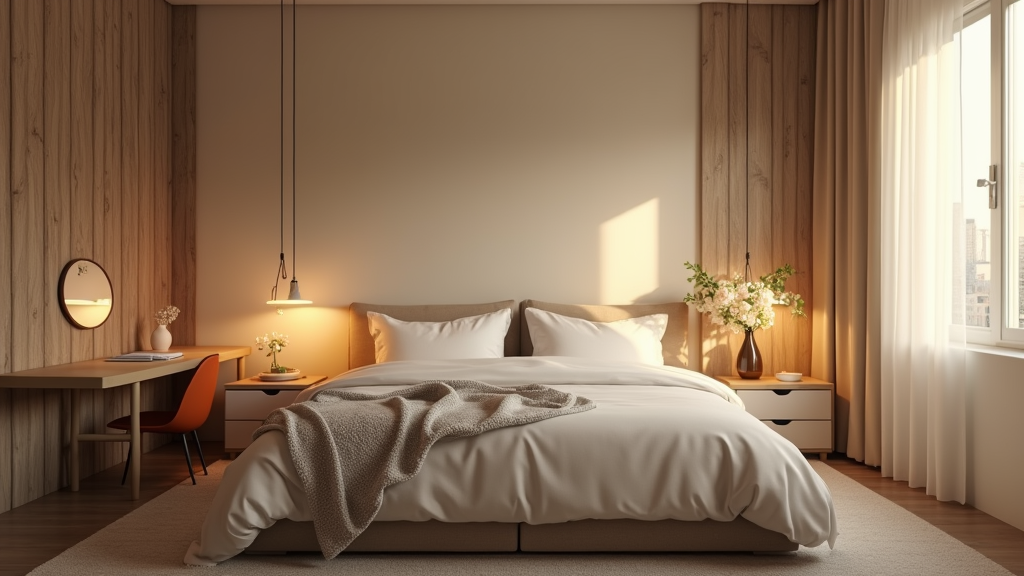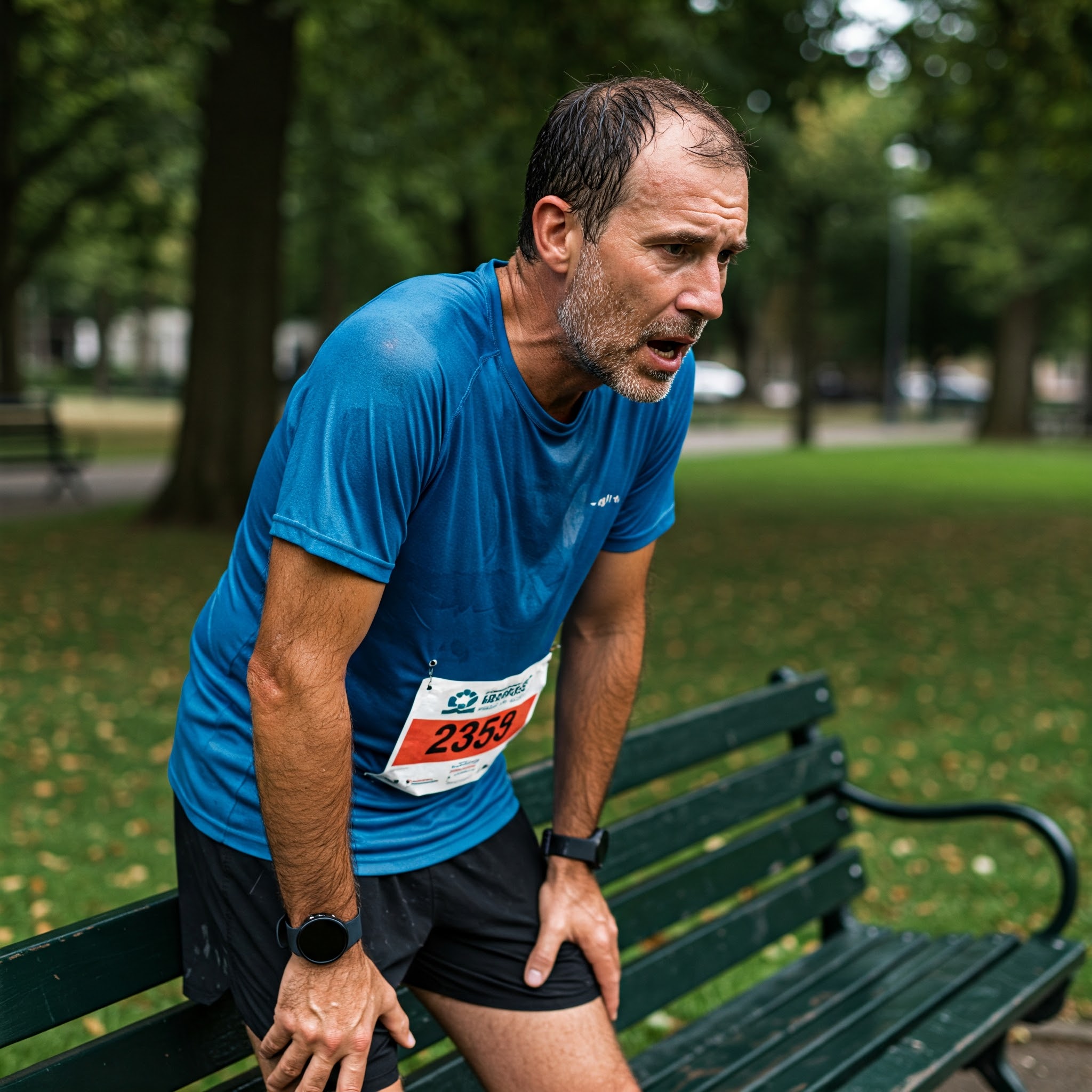 Sleep plays a big role in the way we feel and perform each day. The amount and quality of sleep I get directly affects my physical well-being. In this article, I share what I have learned about how rest affects physical health and some practical ways to improve sleep habits.
Sleep plays a big role in the way we feel and perform each day. The amount and quality of sleep I get directly affects my physical well-being. In this article, I share what I have learned about how rest affects physical health and some practical ways to improve sleep habits.
Many of us have experienced the difference between a smooth night’s sleep and a rough one when our body seems reluctant to get moving. Research shows that good sleep supports better moods, improved metabolism, and a stronger immune system. Not getting enough sleep may contribute to various physical problems that affect many aspects of our lives.
This article explains the connection between sleep and physical health, reviews scientific findings on sleep, and offers tactics for better rest. I include insights on how exercise, brain chemistry, and everyday practices work together to create a sleep-friendly life. Whether you are trying to control your weight, manage stress, or simply wake up feeling refreshed, paying attention to rest can make a big difference.
Understanding the Value of Sleep
Sleep is not simply a break from daily activities; it is an active process that repairs the body, organizes memory, and balances hormones. I have learned that when I get enough sleep, my body functions more efficiently and my mood is more balanced. A healthy sleep routine contributes to an overall better quality of life.
What Sleep Does for the Body
During sleep, the body goes into repair mode. Cells regenerate, muscles relax, and energy is restored. At the same time, the body bolsters its ability to fight off infections and manages stress more effectively. These processes result in improved physical performance and a sharper mind.
Real Life Impacts of Sleep
When I get a full 7-9 hours of sleep, I notice that I handle daily physical challenges with more ease. Being well-rested gives a boost to my sense of control and supports my overall self-esteem.
The Science Behind Sleep and Physical Health
Scientific studies have clearly established links between sleep and several aspects of physical health. Research shows that the balance of chemicals in the brain – including serotonin, stress hormones, and endorphins – is influenced by physical activity, which in turn affects sleep quality. Regular exercise helps me fall asleep faster, and good sleep supports a stable mood. In fact, findings from sources such as the Better Health Channel indicate that exercise improves coping abilities and self-esteem.
How Sleep Affects Hormones and Metabolism
Epidemiological data suggest that sleep loss is a significant risk factor for obesity in both children and adults. Sleep deprivation disrupts appetite-regulating hormones by altering levels of ghrelin and leptin. Ghrelin increases appetite, while leptin signals satiety. When I don’t get enough sleep, these hormonal changes tend to make me feel hungrier, which can lead to weight gain.
Food Choices and Sleep Loss
One study showed that sleep loss can extend the period during which a chemical signal heightens the enjoyment of eating. This signal may incline me toward choosing high-fat, sweet, or salty snacks. Research from UChicago Medicine also indicates that insufficient sleep can boost hunger, leading to food choices that are less than ideal. I have noticed that when I’m sleep deprived, my cravings intensify, making it more challenging to maintain a balanced diet.
Creating Healthy Sleep Practices
Changing long-standing habits can be challenging initially. I found it important to create a routine that is both realistic and sustainable. A few key practices have helped me build healthier sleep patterns over time.
Designing a Sleep-Friendly Schedule
One of the first steps is to set a consistent sleep schedule. I pay close attention to the time I go to bed and the time I wake up. Even on weekends, I try to stick to a similar routine to keep my body clock in line. This consistency makes it easier to fall asleep and wake up naturally each day.
Establishing Pre-Sleep Routines
Before bed, I make a conscious effort to limit screen time and create a calm environment. Soft lighting, a comfortable temperature, and relaxing activities like reading or listening to gentle music help signal to my body that it’s time to wind down. This habit allows my mind to slow down, making the transition to sleep smoother.
How Physical Activity Boosts Sleep
Regular exercise is another essential strategy that I use to improve the quality of my sleep. Physical activity not only helps me fall asleep faster but also deepens the quality of my sleep. When I exercise, my heart rate increases temporarily, and then as my body cools down, sleep comes more naturally.
Brain Chemistry and Exercise
Exercising causes shifts in the levels of brain chemicals such as serotonin, stress hormones, and endorphins. These changes often result in better sleep and a clearer mood upon waking. Research highlighted by the Better Health Channel supports the idea that regular exercise gives a boost to both physical and mental well-being.
Finding a Balance Between Activity and Rest
Although physical activity is very important, it is equally essential to find the right balance. I avoid very intense exercise close to bedtime because it can raise alertness. Instead, I usually work out a few hours before bed so that my body has plenty of time to wind down when it’s time to sleep.
Improving Your Sleep Environment
A good sleep environment is a key ingredient in a healthy sleep routine. A quiet, neat space helps reduce stress while promoting better sleep quality. I make sure that my bedroom is calm, cool, and free of distractions that might disturb my sleep cycle.
Optimizing Your Sleep Space
Small adjustments can have a large impact. For example, I keep my phone away from my bed to avoid the lure of screens when I need to prepare for sleep. While natural light is beneficial in the morning, I use blackout curtains or a sleep mask at night to keep the room dark. These changes help maintain a regular sleep-wake cycle.
Evening Routines for a Better Sleep Environment
Sometimes I prepare my sleep setting in advance by laying out sleepwear and organizing essentials that help me relax before bed. Taking these simple steps reduces the rush of last-minute preparations and creates a peaceful atmosphere conducive to a good night’s sleep.
Handling Common Sleep Issues
Even with a well-planned routine, there are nights when sleep does not come easily. Over time, I have learned several strategies to manage common sleep issues without adding extra stress to my day.
Managing Insomnia and Nighttime Worry
When I find myself worrying at night, I try to set aside time earlier in the day to sort through my thoughts and plan for tomorrow. If insomnia hits, I avoid frequently checking the clock. Instead, I use relaxation exercises such as deep breathing and progressive muscle relaxation to help quiet my mind.
Adjusting When Sleep Is Interrupted
If I wake up unexpectedly in the middle of the night, I try not to stress about the lost time. I practice calm, rhythmic breathing until I naturally drift back to sleep. Focusing on slow, regular breaths helps ease tension and allows my body to settle again.
Handling Late-Night Food Cravings
It is not unusual to experience cravings late at night, especially when sleep has been short. Research shows that sleep deprivation can elevate hunger hormones, leading to a craving for high-calorie foods. When these cravings arise, I opt for a light, healthy snack to curb hunger without disrupting my sleep further.
Steps to a Healthier Sleep Routine
Drawing together all these insights, I have refined my sleep habits gradually over time. The following practical steps can guide you toward a healthier sleep routine:
Actionable Steps to Improve Sleep
- Set a consistent bedtime and wake-up time to keep your body clock regulated.
- Create a wind-down period before sleep by turning off screens and engaging in calming activities.
- Optimize your sleep environment by keeping your room cool, dark, and quiet.
- Incorporate regular physical activity into your schedule, preferring workouts earlier in the day.
- Limit heavy meals and stimulating activities close to bedtime; opt for light snacks and calming routines if needed.
Practical Adjustments Over Time
No two nights are exactly the same, and sometimes adjustments are necessary. Instead of getting discouraged by one off night, I view these strategies as a guide to continuously improve my sleep quality. Consistency remains a really important ally in maintaining good health.
Common Questions on Sleep and Health
What happens if I don’t get enough sleep?
Insufficient sleep can affect my mood and physical performance. It may lead to increased fatigue, reduced concentration, and even a higher risk of health issues such as obesity and heart problems. Recognizing these signals reminds me to prioritize sleep.
How does sleep deprivation alter my eating habits?
Lack of sleep is linked with hormonal changes that drive hunger. Studies show that when I miss out on sleep, increased ghrelin levels make me feel hungrier while lower leptin levels leave me unsatisfied after meals. This imbalance can push me toward choosing calorie-dense foods.
Why do I tend to crave unhealthy foods when I lack sleep?
Some research explains that sleep loss may elevate a chemical signal that boosts the pleasure of eating. As a result, dessert or salty snacks become especially tempting during periods of sleep deprivation.
Final Thoughts & Next Steps
Sleep is a powerful tool for supporting physical health. By understanding how sleep impacts various bodily functions and taking measurable steps to improve sleep quality, I have seen positive changes in my energy levels, mood, and overall well-being. A personalized sleep routine that is adjusted as needed can offer long-lasting benefits.
Your Action Plan
- Review your current sleep habits and set regular bedtimes and wake-up times.
- Create a relaxing pre-sleep routine that minimizes screen time and encourages calmness.
- Consider the benefits of regular exercise and schedule your workouts earlier in the day.
- Improve your sleep environment by ensuring it is quiet, dark, and cool.
- Monitor your eating habits and note how sleep deprivation might trigger cravings for high-calorie foods.
The small changes I have made in my routine are simple yet effective. I encourage you to try one change tonight and see how it transforms your sleep. What is one adjustment you might make to get a better night’s sleep?
By taking the time to rework habits and streamline your nighttime routine, you not only boost your physical performance but also nurture a more balanced and healthy lifestyle. Remember, improving your sleep is a journey that pays off in energy, clarity, and overall well-being. Stay focused and patient as you fine-tune your routine, and soon enough, you will notice the benefits reflected in every aspect of your day.
It’s not just downtime; it’s vital for longevity, healthy eating, better workouts, and sharp focus. Science confirms it: good sleep = better you.
Want to run longer, eat smarter, and perform stronger? Prioritize sleep. We need to focus on techniques to fall asleep faster and get quality sleep!

